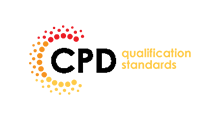 A learning disability is defined by 3 core criteria: lower intellectual ability (usually an IQ of less than 70), significant impairment of social or adaptive functioning, and onset in childhood. Learning disabilities are different from specific learning difficulties such as dyslexia, which do not affect intellectual ability. Although the term ‘intellectual disability’ is becoming accepted internationally, ‘learning disability’ is the most widely used and accepted term in the UK and is therefore used in this guideline. The amount of everyday support a person with a learning disability needs will depend mostly on the severity of the disability. It is important to treat each person as an individual, with specific strengths and abilities as well as needs, and a broad and detailed assessment may be needed.
A learning disability is defined by 3 core criteria: lower intellectual ability (usually an IQ of less than 70), significant impairment of social or adaptive functioning, and onset in childhood. Learning disabilities are different from specific learning difficulties such as dyslexia, which do not affect intellectual ability. Although the term ‘intellectual disability’ is becoming accepted internationally, ‘learning disability’ is the most widely used and accepted term in the UK and is therefore used in this guideline. The amount of everyday support a person with a learning disability needs will depend mostly on the severity of the disability. It is important to treat each person as an individual, with specific strengths and abilities as well as needs, and a broad and detailed assessment may be needed.
Some people with a learning disability display behaviour that challenges. ‘Behaviour that challenges’ is not a diagnosis and is used in this guideline to indicate that although such behaviour is a challenge to services, family members or carers, it may serve a purpose for the person with a learning disability (for example, by producing sensory stimulation, attracting attention, avoiding demands and communicating with other people). This behaviour often results from the interaction between personal and environmental factors and includes aggression, self-injury, stereotypic behaviour, withdrawal, and disruptive or destructive behaviour. It can also include violence, arson or sexual abuse, and may bring the person into contact with the criminal justice system.
It is relatively common for people with a learning disability to develop behaviour that challenges, and more common for people with more severe disability. Prevalence rates are around 5–15% in educational, health or social care services for people with a learning disability. Rates are higher in teenagers and people in their early 20s, and in particular settings (for example, 30–40% in hospital settings). People with a learning disability who also have communication difficulties, autism, sensory impairments, sensory processing difficulties and physical or mental health problems (including dementia) may be more likely to develop behaviour that challenges.
The behaviour may appear in only certain environments, and the same behaviour may be considered challenging in some settings or cultures but not in others. It may be used by the person for reasons such as creating sensory stimulation, getting help or avoiding demands. Some care environments increase the likelihood of behaviour that challenges. This includes those with limited opportunities for social interaction and meaningful occupation, lack of choice and sensory input or excessive noise. It also includes care environments that are crowded, unresponsive or unpredictable, those characterised by neglect and abuse, and those where physical health needs and pain go unrecognised or are not managed.
Multiple factors are likely to underlie behaviour that challenges. To identify these, thorough assessments of the person, their environment and any biological predisposition are needed, together with a functional assessment. Interventions depend on the specific triggers for each person and may need to be delivered at multiple levels (including the environmental level). The aim should always be to improve the person’s overall quality of life.
This guideline will cover the care and shared care provided or commissioned by health and social care, in whatever care setting the person lives.
Safeguarding children
Remember that child maltreatment:
- is common
- can present anywhere, such as emergency departments and primary care or on home visits.
Be aware of or suspect abuse as a contributory factor to or cause of behaviour that challenges shown by children with a learning disability. Abuse may also coexist with behaviour that challenges.
This section has been agreed with the Royal College of Paediatrics and Child Health.
Safeguarding adults
Adults with a learning disability are vulnerable to maltreatment and exploitation. This can occur in both community and residential settings. A referral (in line with local safeguarding procedures) may be needed if there are concerns regarding maltreatment or exploitation, or if the person is in contact with the criminal justice system.
Medication
The guideline will assume that prescribers will use a medication’s summary of product characteristics to inform decisions made with people offered medication (or their family members or carers, as appropriate).
This guideline recommends some medications for indications for which they do not have a UK marketing authorisation at the date of publication, if there is good evidence to support that use.
The prescriber should follow relevant professional guidance, taking full responsibility for the decision. The person offered the medication (or those with authority to give consent on their behalf) should provide informed consent, which should be documented.
 Person-centred care
Person-centred care
This guideline offers best practice advice on the care of children, young people and adults with a learning disability and behaviour that challenges.
People who use health services and healthcare professionals have rights and responsibilities as set out in the NHS Constitution for England. In addition, adults, carers and local authorities have rights and responsibilities set out in the Care Act 2014 (the majority of which took effect from April 2015). Treatment and care should take into account individual needs and preferences. People who use health and social care services should have the opportunity to make informed decisions about their care and treatment, in partnership with their healthcare professionals and social care practitioners. If the person is under 16, their family or carers should also be given information and support to help the child or young person to make decisions about their treatment. If it is clear that the child or young person fully understands the treatment and does not want their family or carers to be involved, they can give their own consent. Healthcare professionals should follow the Department of Health’s advice on consent. If someone does not have the capacity to make decisions, healthcare professionals should follow the code of practice that accompanies the Mental Capacity Act and the supplementary code of practice on deprivation of liberty safeguards.
If a young person is moving between child and adult services, care should be planned and managed according to the best practice guidance described in the Department of Health’s Transition: getting it right for young people.
Adult and child health and social care teams should work jointly to provide assessment and services to young people with a learning disability and behaviour that challenges. Diagnosis and management should be reviewed throughout the transition process, and there should be clarity about who is the lead clinician to ensure continuity of care.





-
Add a note